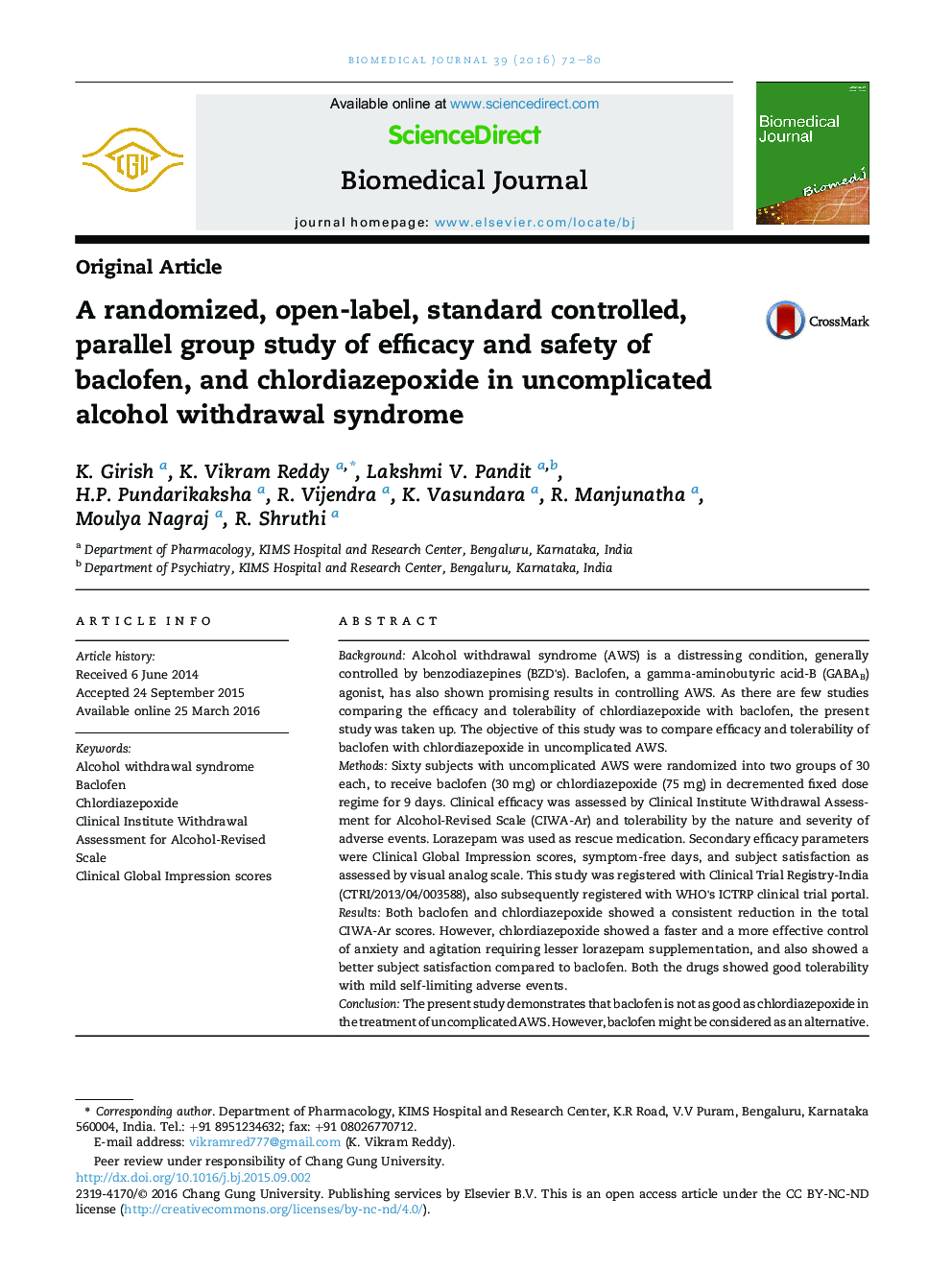| Article ID | Journal | Published Year | Pages | File Type |
|---|---|---|---|---|
| 2106066 | Biomedical Journal | 2016 | 9 Pages |
BackgroundAlcohol withdrawal syndrome (AWS) is a distressing condition, generally controlled by benzodiazepines (BZD's). Baclofen, a gamma-aminobutyric acid-B (GABAB) agonist, has also shown promising results in controlling AWS. As there are few studies comparing the efficacy and tolerability of chlordiazepoxide with baclofen, the present study was taken up. The objective of this study was to compare efficacy and tolerability of baclofen with chlordiazepoxide in uncomplicated AWS.MethodsSixty subjects with uncomplicated AWS were randomized into two groups of 30 each, to receive baclofen (30 mg) or chlordiazepoxide (75 mg) in decremented fixed dose regime for 9 days. Clinical efficacy was assessed by Clinical Institute Withdrawal Assessment for Alcohol-Revised Scale (CIWA-Ar) and tolerability by the nature and severity of adverse events. Lorazepam was used as rescue medication. Secondary efficacy parameters were Clinical Global Impression scores, symptom-free days, and subject satisfaction as assessed by visual analog scale. This study was registered with Clinical Trial Registry-India (CTRI/2013/04/003588), also subsequently registered with WHO's ICTRP clinical trial portal.ResultsBoth baclofen and chlordiazepoxide showed a consistent reduction in the total CIWA-Ar scores. However, chlordiazepoxide showed a faster and a more effective control of anxiety and agitation requiring lesser lorazepam supplementation, and also showed a better subject satisfaction compared to baclofen. Both the drugs showed good tolerability with mild self-limiting adverse events.ConclusionThe present study demonstrates that baclofen is not as good as chlordiazepoxide in the treatment of uncomplicated AWS. However, baclofen might be considered as an alternative.
